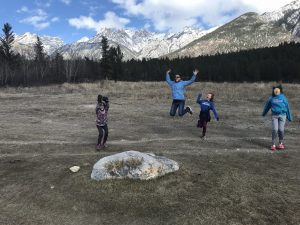I recently learned that it is only since the early 1900’s that grades are used in schools. Before the early 1900’s, standards were the norm and students were moved forward in a subject once they could demonstrate they had a solid understanding of whatever standards they were working on. Therefore, students were not rushed through the learning process. Some took a short period of time to move forward. Others took much longer.
Dyslexia Does Not Define Success (Part 3)
My blog posts from last week and the week before were the first two of a 3 part series discussing incredibly inspirational individuals who have had huge struggles with reading in their younger years. Some of them still do.
This week, I am bringing attention to a few more of these inspiring individuals who are tremendously successful in life despite having had struggles with reading in their younger years. I hope you find each of them as inspiring as I do!
Dyslexia Does Not Define Success (Part 2)
Last week’s blog post was the first in a 3 part series featuring incredibly inspirational individuals who are dyslexic. They each had huge struggles with reading in their younger years and some still do.
What does it mean to be dyslexic? Oxford dictionary defines dyslexia as “A general term for disorders that involve difficulty in learning to read or interpret words, letters, and other symbols, but that do not affect general intelligence.”
Being a general term for disorders, there are many factors that can be playing a role in why an individual may be dyslexic. This is why each dyslexic individual is unique in terms of what is needed to overcome the reading barrier.
Dyslexia Does Not Define Success (Part 1)
Oxford dictionary defines dyslexia as “A general term for disorders that involve difficulty in learning to read or interpret words, letters, and other symbols, but that do not affect general intelligence.”
With this stated, and knowing dyslexia does NOT affect general intelligence, there still seems to be this common belief out there that, when someone struggles with reading in school, they simply won’t go far in life. Many are even led to believe that if they just tried harder, they would easily be able to read. I do believe that everyone can learn to read. It does, however, need to be approached in the specific manner that works for the individual. I do NOT believe any individual gets behind in reading because of a lack of motivation for learning to read.
Supporting Parents of Children with ODD (Oppositional Defiant Disorder)
Every Parent Has Moments
Anyone who has more than 1 child recognizes that each child is unique, complete with his/her own mind, abilities and temperament. Some children are naturally easy-going, others will argue over a speck of dirt.
Letter from Anxiety
I recently had the pleasure of being able to chat with a couple of former students that had frequent encounters with anxiety… students that are now of the age to be able to reflect on some of those past behaviors they engaged in during those anxious moments that drove their teachers crazy!
It was interesting to hear the insight they were able to provide and reflect upon when it came to some of their past behaviors. To put it all together, I asked if they thought it appropriate that I write a letter reflecting their voice to their former teachers. I got approval before posting this.
Big Benefits of Outside Play
We are in the middle of a big melt outside! Plus, to add to this, I happened to notice our neighbor’s big melt flowing directly into our yard today in streams before stopping and pooling up in the middle of our back yard. (Yeah, this may be a bigger problem than I wish to focus on at this moment!) On the bright side, my kids are loving it! They put on their rain pants, jackets and rubber boots after school today and played in the great outdoors.

As a kid, I have awesome memories of doing the same! We do see a few out playing, but the streets are fairly quiet even though the temperature is bearable. I sometimes question: Are kids in general playing outside less than just a few years ago?
Top Benefits of Board Games
We had a holiday week recently and so my hubby and I took the kids for a little mountain getaway. In the local coffee shop there, they had a shelf full of board games. I’m not sure if this is more common in the mountains, but I’ve seen this in a few mountain shops even though I’ve never seen it in our urban shops. So of course we played some board games while there!

I really like board games and sometimes feel they are a forgotten gem. We do have a few favorites that we seem to play in spurts at home, then forget about as the craziness of life and other activities takes over. Every time we play, however, I find myself wondering why we don’t do this more.
There are so many benefits from playing board games as a family! Some of my favorites are:
13 Must-Have Quality Items for Your Sensory Space
Why a Sensory Space?
Reactions to sensory stimuli often play a direct role in the behavior of individuals. Some individuals require a lot of sensory input in order for their bodies, and therefore behavior, to remain calm. Other individuals hardly require any at all. Either way, incorporating multi-sensory input in an individual’s day helps to maintain a level of emotional regulation and, therefore, often helps individuals more easily learn or achieve things.
Diagnosis and Achievement

Grade 8 Student: “I’m going to have a really off day today. I won’t be able to concentrate so I won’t get any work done. I will probably be super crazy, too! I have a diagnosis of ADHD and didn’t take my meds this morning.”
Me: “Hmmm, so do I have to send you to the principal’s office right now then… before you even do anything just in case?”
Grade 8 Student: (laughs) “No.”
Me: “What kinds of crazy things are you going to do on this off day?”
